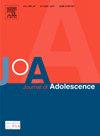The Longitudinal Relationship Between Parent-Adolescent Conflict and Adolescents’ Bullying Perpetration: The Role of Self-Control and School Climate
Abstract
Introduction
Parent-adolescent conflict is associated with bullying perpetration among adolescents. However, few studies have explored the underlying mechanisms of these relationships. Understanding these mechanisms is crucial for developing effective interventions to reduce bullying behaviors.
Methods
The study involved 899 Chinese adolescents (50.9% female, baseline Mage = 14.55 years, SD = 1.60) from ten middle schools in Henan Province, China. Data were collected in three waves between December 2017 and December 2019. Traditional and random intercept cross-lagged panel models were used to assessed the longitudinal relationships between parent-adolescent conflict and bullying perpetration over time. Additionally, mediation analysis was conducted to examine the role of self-control, and moderation analysis was performed to explore the impact of school climate on the mediation effect of self-control.
Results
Both traditional and random intercept cross-lagged panel models revealed a significant longitudinal relationship between parent-adolescent conflict and bullying perpetration. Mediation analysis showed that self-control mediated this relationship, indicating that higher levels of conflict were associated with lower self-control, which in turn predicted higher levels of bullying perpetration. Furthermore, the moderation analysis demonstrated that school climate moderated the effect of self-control on bullying perpetration, with a positive school climate weakening the negative impact of low self-control.
Conclusions
These findings contribute to understanding the dynamic relationship and underlying mechanisms between parent-adolescent conflict and bullying perpetration, emphasizing the need for joint efforts from families and schools to reduce bullying perpetration. Interventions targeting self-control and improving school climate may be particularly effective in reducing bullying perpetration among adolescents.

 求助内容:
求助内容: 应助结果提醒方式:
应助结果提醒方式:


